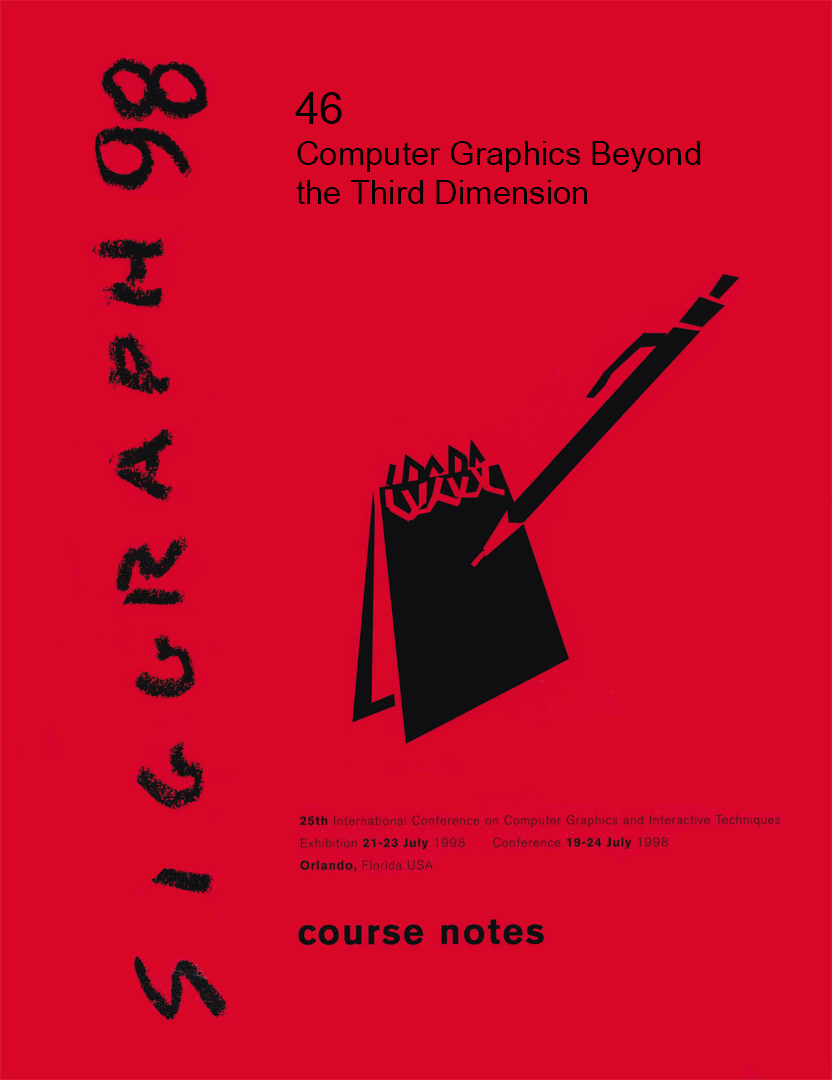“Computer Graphics Beyond the Third Dimension” by Hanson
Conference:
Type(s):
Title:
- Computer Graphics Beyond the Third Dimension
Organizer(s):
Presenter(s)/Author(s):
Entry Number: 46
Abstract:
Prerequisites
Sophisticated understanding of analytic geometry and linear algebra, and familiarity with conventional mathematical methods of 3D computer graphics used in geometric transformations, polygon rendering, ray-tracing, and illumination models. Some knowledge of volume rendering helpful.
Topics Covered
Basic methods of high-dimensional geometry as intuitive generalizations of 3D graphics techniques. Application of projection, normal determination, and generalized lighting to examples such as visualization of quaternions and 3D scalar fields.
Description
This advanced tutorial provided an intuitive connection between many standard 3D geometric concepts used in computer graphics and their higher-dimensional counterparts. It began by answering frequently asked geometric questions whose resolution, though obvious in hindsight, may be obscure to those who have never ventured beyond the third dimension. It then developed methods for describing, transforming, interacting with, and displaying geometry in arbitrary dimensions. Several examples were directly relevant to ordinary 3D graphics, including the treatment of quaternion frames as 4D geometric objects and application of generalized lighting models to 3D volumetric density data reinterpreted as 4D elevation maps.
Contributed By:
- Mary Whitton
Location:
- Charles Babbage Institute Archives, University of Minnesota





